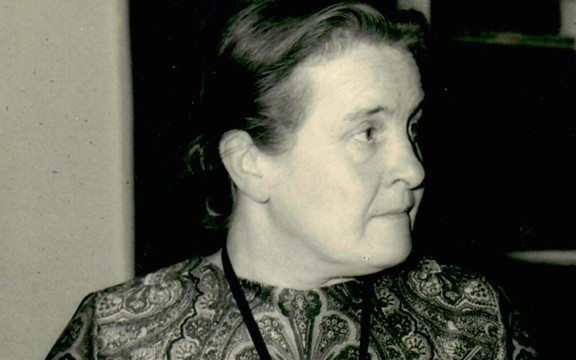
This text is a very short version of a paper that I had the pleasure and honor to present at a conference celebrating the 60th Anniversary of G.E.M. Anscombe’s Paper “Modern Moral Philosophy” at the University of Notre Dame, January 21-23 2018.
I. Hegel’s harsh verdict on modern virtue
In his Phenomenology of Spirit (§390), Hegel makes a striking comment on virtue ethics: modern theories of virtue produce only “emptiness” and “boredom”. He claims that they contain nothing real, only pompous rhetoric, and that they try to instill a pretentious sense of moral excellence in their readers with meaningless words. While Hegel criticizes contemporary attempts to virtue ethics quite harshly, he praises their ancient predecessors: Philosophers like Aristotle and Plato provided a robust and substantial account of the practical good and the virtues. Hegel obviously thinks that ancient theories of virtue succeeded where modern theories fail. Hegel explains that the main difference between these two different kinds of accounts is a logical one. He argues that modern theorists falsely depict virtue in the category of generality (Allgemeines) while ancient philosophers appropriately use the category of particularity (Besonderes). Unfortunately, Hegel’s terminology notoriously tends to obscure his arguments. In this text I try to sketch out a systematic reading that might not only help us to decode Hegel’s text but also might show us something about the logic of virtue – independently from Hegel’s other philosophical convictions and the historical context of the Phenomenology of Spirit. First, I will propose my interpretation of Hegel’s distinction between general and particular accounts of virtue (part II). Secondly, I will reconstruct Hegel’s argument why a proper concept of the virtues should be in the category of particularity (part III). Finally, I will mention an important consequence from this claim for the supposed unity of virtues.
II. General and particular virtues
I would like to suggest the following reading of Hegel’s remarks: By distinguishing the generality of modern virtue and the particularity of ancient virtue, Hegel alludes to a difference in scope of virtue norms. Modern theories usually take virtue norms to be “general” in the sense that they apply to all mankind. Virtues are defined as qualities that make a human being good qua human being. They are part of the essential description of the human life-form. The virtuous life realizes a perfect or ideal version of the human life. A vicious person, on the other hand, does not only violate some moral laws, she represents a deviation from this ideal of the human life. The vicious person fails to fully realize her life-form. The vicious person is still a human being, of course, but only in a defective way. This way of thinking about virtue norms as general norms for the whole life-form is reflected, for example, in the expression that a certain virtuous behavior is “humane” or when a virtuous person is called a “true human”. An important logical feature of this modern view is the assumption that particular ethical demands (e.g. of a certain social role) are derived from the general norm. The general formulation of a virtue (“humans act justly”) is supposed to have logical priority over the particular formulation (“judges act justly”). The particular virtues of a judge, for example, are only applications of the general norm to the particular situation of a judge. Ancient virtue ethics, however, are more modest in their claims, according to Hegel. The scope of their virtue norms is limited to the ethical demands and obligations of particular social roles and relationships. They do not purport to describe the good life and good actions of a human being per se, but the actions and life of a good parent, a good politician, a good friend, and so on. The particular norms of social roles have logical priority over statements like “humans act justly”. The latter are only abstractions from the substantial particular norms. To understand what justice is, therefore, we have to start from an understanding of the particular justice of a parent, a judge, a teacher, and so on. The general and abstract formulations are mainly shorthand for the more elaborate particular versions. Hegel’s characterization of ancient virtue ethics might surprise some readers. It is often assumed that Aristotle himself introduced the concept of virtue by the notion of being good qua human being. In the first book of the Nicomachean Ethics he equates the virtuous life with the good human life. Also, his descriptions of the virtues in the following books seem not to be limited to certain social roles. He seems to talk about justice, courage, prudence, temperance, and so on in an unqualified sense and not about the courage of a father and the temperance of a poet. Such passages apparently point to a general conception of the virtues like the one that Hegel attributes to the modern authors. After all, many modern virtue ethicists explicitly posit themselves in the tradition of Aristotle. I cannot defend Hegel’s reading of Aristotle here. Hegel would, however, caution us not to take the mentioned passages too literally. Aristotle often seems to speak about human virtues and human life in a very general sense. Nevertheless, he has a very particular audience in mind. The virtues described in the Nicomachean Ethics are the virtues of experienced and rich Athenian noblemen, i.e., citizens that occupy a particular set of social roles. This particularity becomes quite apparent in the virtue of magnificence (megaloprepeia, NE IV.4-6): The magnificent man is able to donate temple buildings to the city-state, equip warships and host theater festivals – it is obviously a virtue only for the happy few. This kind of dependency of the virtues on social status is even more conspicuous in Plato’s Politeia: In the discussion of his Utopian city, he explicitly differentiates between the virtues of the philosopher-king, the guardians and the workers.
III. Co-operation and Sociality
According to Hegel, ancient virtue ethics have a better conception of virtues than their modern epigones because of a profounder understanding of human nature. Aristotle calls us humans the “social animal”. Human sociality, however, is characterized by co-operation and division of labor to a much higher degree than any other animal. Human societies tend to develop a multitude of social roles with highly specialized functions and activities. The particularity of ancient virtues acknowledges this fact about human sociality. Their virtues mirror the partitioned structure of co-operation. If human life is essentially characterized by co-operation and division of labor, then this also applies to the human good. The daily lives of a scientist and a soldier, for example, differ widely and so do the ethical demands that we place on them. Different social roles have different functions in society. Therefore, to act well means something different in each of these roles. Sometimes these differences might be obscured by the general terms that we use. The sentences “A criminal judge should treat the accused justly” and “Parents should treat their children justly” apply the same adverb “justly”. Nevertheless, they refer to two distinct kinds of norms. Parents who behave like criminal judges toward their children certainly do not act justly. A similar mistake is made by the judge who treats the accused motherly or fatherly. Hegel would not deny that there are still some similarities between the two kinds of justice – after all, it is no coincidence that we apply the same term to both. These similarities, however, are only vague. They do not carry enough content to guide our actions. If we want to know what we should do, Hegel urges us to focus on the particular demands of social roles and personal relationships. The reference to a broad and general concept of a good human being, for example in the form of the advice “Be a good human being!” is less than helpful. There is nothing substantial to be learned about good action and virtuous character by rhetorically pointing to the idea of mankind. For that reason, Hegel criticizes contemporary virtue ethics as “empty” and “boring”.
IV. The Problem of Unity
There is one important consequence of the logical difference between modern and ancient concepts of virtue that I want to mention here at the end of my text: Hegel states that the particularity of the ancient concept allows us to see that the unity of the virtues and the human life-form is a non-trivial problem. Modern accounts tend to overlook this philosophical challenge since they already presuppose the unity of the virtues and of the life-form in a certain sense. If all particular virtues of social roles were only applications of a general virtue to certain circumstances, as modern accounts seem to assume, there can be no true conflict between the virtues. All agents act on the same principles, namely the virtues of the human life-form. Disagreement may occur only about questions of application and contingent circumstances, not about the principles itself. The picture of the ancient account of virtues, however, differs hugely: In human society, many different virtues, which are based on different social roles, interact with one another. There might be incompatible demands and claims due to the different underlying principles. Although the different social roles share common goals, and their functions are mutually interdependent, these common goals and functions are not simply given, as for example, the basic biological purposes of survival and reproduction. From an abstract perspective it seems quite obvious that, e.g., a scientist, a soldier, a judge and a poet co-operate in a society and share common goals. If we look closely, however, it is far from clear how this co-operation is structured and whose ethical demands should have priority over others. To complicate matters: human societies are not static, their goals evolve and with them the specifics of our co-operation changes. Conflicts between ethical demands cannot be resolved by reference to some general notion of human life, they have to be worked out by reflection and creative compromise. The unity of human virtues and the unity of a human life-form are not a starting point of our historical and philosophical enterprise, they are an end – an end that has to be re-evaluated and re-shaped constantly. The human life-form is in an act of constant self-reaction. Hegel believes that the ancient virtue ethics provide us with the proper account to face this challenge.
Martin Palauneck was a visiting student at the University of Chicago in 2013. He is a doctoral candidate in philosophy at the University of Leipzig. His thesis pertains G.W.F. Hegel’s take on Aristotle and ancient virtue theory.




